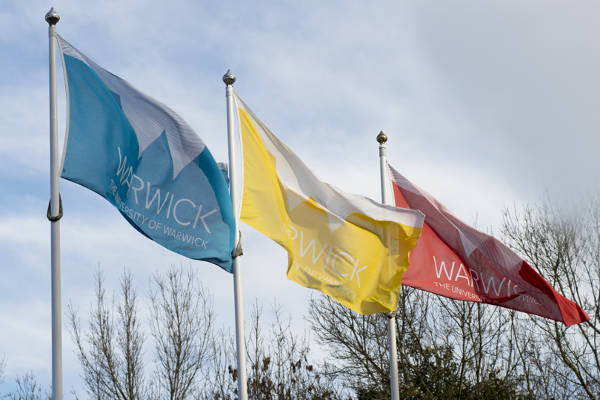News
Bo Kelestyn shortlisted for Warwick Award for Teaching Excellence
We are proud of our Director of Student Experience Bo Kelestyn, who has been shortlisted for a Warwick Award for Teaching Excellence (WATE) which recognises outstanding teaching and support across the University. Bo has made a great impact since her arrival in Chemistry, we celebrate in her achievement of being shortlisted and wish her the very best of luck in winning the award.
Find out more about WATE.
BonLab takes the International Polymer Colloids Group online in exciting global weekly science webinar series
The International Polymer Colloid Group (IPCG) was founded in 1972 as a global forum for the exchange of ideas and emerging research activities for scientists and engineers from both academia and industry who study or use polymer colloids.
It is a vibrant scientific international community who normally meet face-to-face every two years to discuss the latest global developments related to polymer colloid science (2013 Shanghai, 2015 New Hampshire, 2017 the Basque Country, 2019 Singapore).
As a result of the global COVID19 pandemic, prof. dr. ir. Stefan Bon came up with the idea to take the IPCG forum online with a series of weekly scientific webinars, called the i-PCG 2020 Webinars. Anyone who is interested in science can participate as audience member, or even better, as presenter. Expect to interact with the world top in polymer colloid, with expert participants from industry, academia and enthusiasts. All is free.
Parliament Prize for Warwick Chemist
Fabienne Bachtiger, part of the Sosso group, presented her research to dozens of politicians and a panel of expert judges, as part of the poster competition STEM for BRITAIN, on Monday 9th March in the House of Commons. The competition was strong but she won a Silver award for the excellence of her chemistry research, walking away with a £1,250 prize and medal.
STEM for BRITAIN 2020 Chemistry
Congratulations to Fabienne Bachtinger who has been selected to display her poster at the House of Commons as part of the Chemistry session of STEM for BRITAIN 2020.
If Fabienne wins the medal for best poster in her subject session she would become eligible to win the Westminster Medal for the overall winner.
Fingers crossed Fabienne!
Chemistry World Today highlights Shipman Group Research
Chemistry World Today highlights Shipman Group Research into 'Synthetic strategy exploits fluxional nitrogen to deliver three chiral centres for the price of one'
Professor Gibson awarded €2M ERC grant
Professor Matthew Gibson has been awarded a prestigious €2M ERC consolidator grant for his work on new materials to help transport protein and cell-based therapies. The project ICE_PACK will support a cross disciplinary team of researchers based in both the Chemistry Department and also in Warwick Medical School.
Professor Gibson awarded €2M ERC grant
Professor Matthew Gibson has been awarded a prestigious €2M ERC consolidator grant for his work on new materials to help transport protein and cell-based therapies. The project ICE_PACK will support a cross disciplinary team of researchers based in both the Chemistry Department and also in Warwick Medical School.

